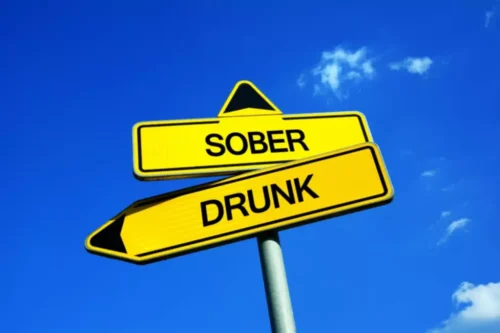
By learning from the experiences of those who came before us and staying mindful of our own spiritual needs, we can overcome the challenges of a spiritual malady and find true peace and contentment in our lives. So, if you are struggling with a spiritual malady, remember that you are not alone, and that with the right mindset and approach, you can find your way back to a state of wholeness and purpose. The development and maintenance of PTSD symptoms have been shown to relate to particular negative cognitions after trauma exposure, including negative appraisals of the trauma and its implications (Dunmore, Clark, & Ehlers, 2001; Ehlers, Mayou, & Bryant, 1998).
Biblical Roots of Early A.A.’s Twelve Steps
Have you physically or emotionally mistreated a family member? As much as it depends on us, we need to live at peace with our families. If that just isn’t possible, or if you don’t feel safe there, let Celebrate Recovery be your family.
What You Need to Know About Spiritual Illness and Disease

The malevolent worldview and disrupted relationship with God characteristic of spiritual struggle may lead to the perceptions of threat or loss that cause and maintain PTSD symptoms (Ehlers & Clark, 2000). For instance, attributing the event to God’s control may be an effort to reduce distress by compensating for a perceived lack of personal control; however, this attribution will only reduce anxiety if God is benevolent (Kay, Gaucher, Napier, Callan, & Laurin, 2008). In fact, negatively-valenced reappraisals of the traumatic event may fail to reduce the current perceptions of threat by merely redistributing the threat from human forces to spiritual ones. However in order to treat it we have to first contend with the symptomatic manifestation of this disorder, chronic alcohol use, as it is the most life threatening aspect of this disorder when we present our selves at AA. Here we have an abnormal reaction to alcohol and for some alcoholics a maladjustment to life. The magic of the the steps is that they seem to reveal the patterns of behaviour that our actions have prompted over the course of our lives.
Inside The Alcoholic Brain

But don’t stop the rest of your family from experiencing the joy and support of a church family. Sometimes it’s easier to admit our resentments against a stranger or co-worker than someone in our own family. So denial can be a pretty thick fog to break through in this area. It takes rigorous honesty, and it might require a lot of digging and peeling away of layers to start uncovering things. Spending time with God and reading His word is a big part of keeping our minds healthy and grounded in truth.

This includes finding a sense of spirituality in the majesty of the Rocky Mountains. This is how a mental health disorder manifests itself as distorted fear based thinking which appear, if acted upon, to make one’s situation a whole lot worse. These illustrate how the 12 step programme can help with an emotion dysregulation disorder.

External factors like societal pressures and expectations can cause spiritual distress. Recognizing and acknowledging the challenges and seeking support and guidance from spiritual leaders and professionals can facilitate an individual’s spiritual growth and overcome spiritual maladies. To overcome https://ecosoberhouse.com/article/alcoholism-statistics-you-need-to-know/, one can engage in various methods that can uplift their spirits and revive their inner self. Practicing mindfulness, meditation, regular prayer, and attending spiritual retreats can instill positivity and help clear mental blocks.
Signs You Might Be Experiencing Complicated Grief
You get to a point where you just have to accept yourself, warts and all, exactly as you are, and not be continually looking for the “someone better”. And the good stuff feels good, but can trap you into stuff that’s not got clear healthy boundaries. If you’re interested in spiritual healing, it’s likely that you feel something fundamental is missing from your life.

- Go slowly, and if at any time you feel that any of these suggestions are too much too soon, stop immediately and take care of yourself.
- Perhaps you feel driven to roll around howling and clawing at the ground.
- Known, so everyone of today can apply these life-saving principles.
- (Its actually turned out to be awesome!) I suffered a good amount of physical cravings the first two weeks.
When I am in fear and shame the same pattern of negative reactions entrap my heart in its’ poisonous grip and I react in a way I would not choose to, if more reasonable. I am not only fearful (leading to dishonesty in my thinking, Allergic to Alcohol? 10 Common Symptoms of Alcohol Intolerance catastrophizing, intolerance of uncertainty about how they will behave etc) I have reacted to their arrival via shame based defence mechanisms and spiritual malady reactions. I am shamed and disgusted that my neighourhood has come to this. When I was doing my step four inventory as part of my 12 step programme of recovery I did it pretty much as suggested in the Big Book. I had an argument with a guy once who suddenly proclaimed he was upset by what I had said. I was amazed as this guy was reading his emotions, identifying verbalising/expressing them to me in a way I have never been able to do.
- It is also the reason why many of us relapse because we cannot stop “obsessing” about drinking and/or using.
- So the key here is to find a person or group of people in which you feel safe around.
- That, we think, is the root of our troubles.” This “SELFISHNESS-self-centeredness” (or the “ego”, as some people refer to it) drives us to respond to life situations with the above “symptoms” as well as disorders and addictions other than alcoholism.
- Other cognitions that may predict spiritual struggle include pre-trauma self-appraisals (R. A. Bryant & Guthrie, 2007), attributional style (Gray et al., 2007), and coping self-efficacy beliefs (Benight & Bandura, 2004).
By taking steps to nourish your spiritual self, you can overcome a spiritual malady and return to a state of balance and harmony in your life. Participants were categorized into trauma and non-trauma groups based on interim trauma exposure. If a participant endorsed on the TLEQ at Time 2 having experienced an event at least one time and endorsed the follow-up question indicating fear, helplessness, or horror in response to the event, he or she was considered to have experienced trauma. If at Time 2 a participant endorsed only an event on the CSLES, or endorsed an event on the TLEQ but reported no fear, helplessness, or horror in response, he or she was categorized into the non-trauma group. A potential difficulty with measuring spiritual struggle is its relative infrequency.